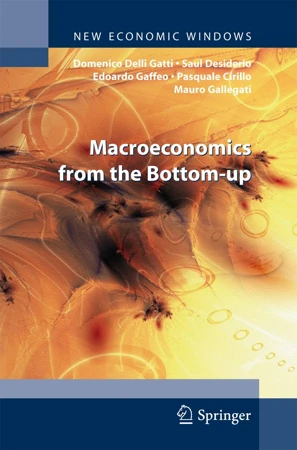Macroeconomics from the Bottom-up

Level:
mittel
Blurb
This book arose from our conviction that the NNS-DSGE approach to the analysis of aggregate market outcomes is fundamentally flawed. The practice of overcoming the SMD result by recurring to a fictitious RA leads to insurmountable methodological problems and lies at the root of DSGE models’ failure to satisfactorily explain real world features, like exchange rate and banking crises, bubbles and herding in financial markets, swings in the sentiment of consumers and entrepreneurs, asymmetries and persistence in aggregate variables, and so on. At odds with this view, our critique rests on the premise that any modern macroeconomy should be modeled instead as a complex system of heterogeneous interacting individuals, acting adaptively and autonomously according to simple and empirically validated rules of thumb. We call our proposed approach Bottom-up Adaptive Macroeconomics (BAM). The reason why we claim that the contents of this book can be inscribed in the realm of macroeconomics is threefold: i) We are looking for a framework that helps us to think coherently about the interrelationships among two or more markets. In what follows, in particular, three markets will be considered: the markets for goods, labor and loanable funds. In this respect, real time matters: what happens in one market depends on what has happened, on what is happening, or on what will happen in other markets. This implies that intertemporal coordination issues cannot be ignored. ii) Eventually, it’s all about prices and quantities. However, we are mostly interested in aggregate prices and quantities, that is indexes built from the dispersed outcomes of the decentralized transactions of a large population of heterogeneous individuals. Each individual acts purposefully, but she knows anything about the levels of prices and quantities which clear markets in the aggregate. iii) In the hope of being allowed to purport scientific claims, BAM relies on the assumption that individual purposeful behaviours aggregates into regularities. Macro behaviour, however, can depart radically from what the individual units are trying to accomplish. It is in this sense that aggregate outcomes emerge from individual actions and interactions.
Wir nutzen Cookies. Klicke auf "Akzeptieren" um uns dabei zu helfen, Exploring Economics immer besser zu machen!

